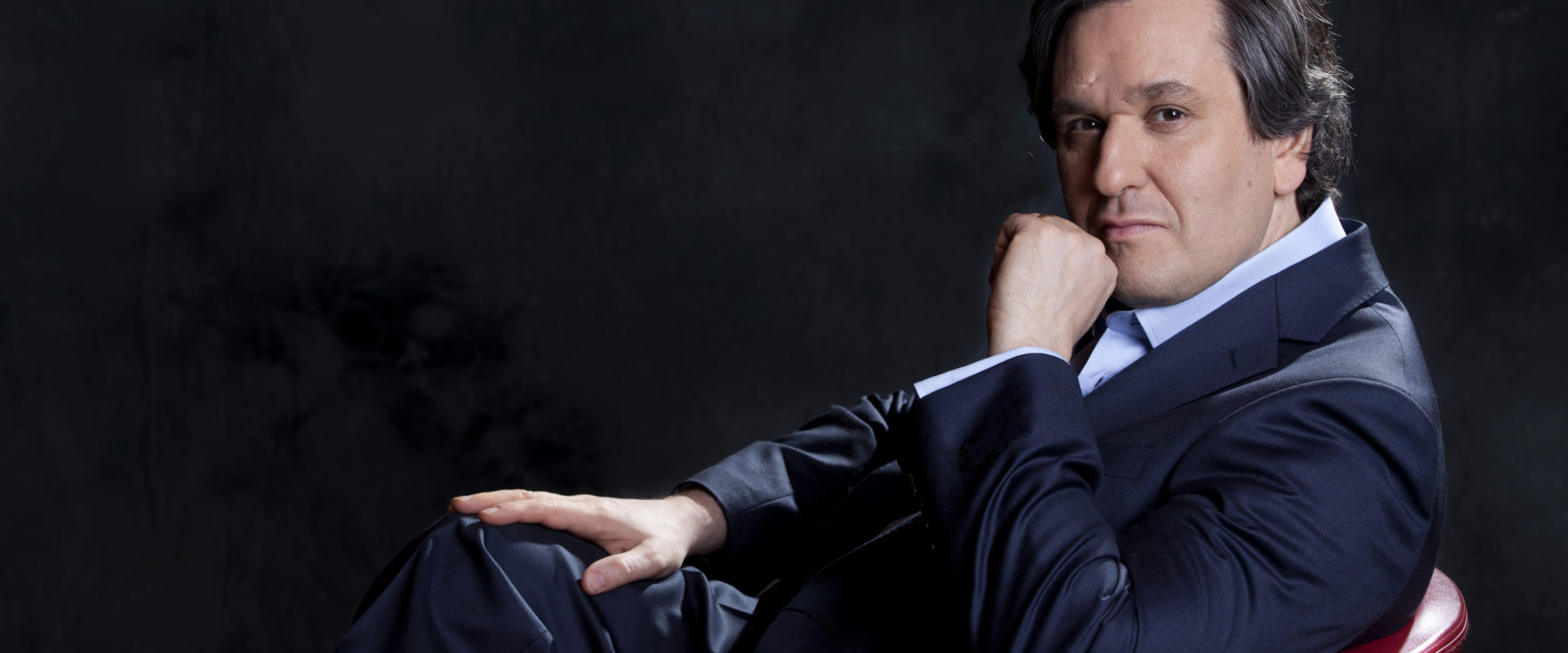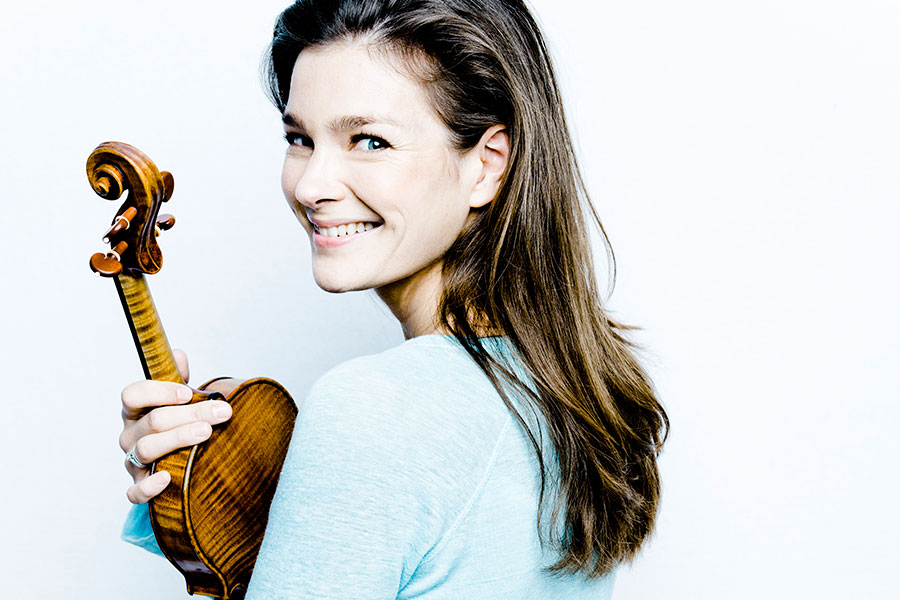Spring tour with Sir Antonio Pappano and Janine Jansen
26 May - 3 June 2019

Following their successful projects in 2016 and 2018, the Chamber Orchestra of Europe and Sir Antonio Pappano join forces again this year in five concerts in Amsterdam (28th May), Reggio Emilia (29th May), Bologna (30th May), Friedrichshafen (1st June) and Frankfurt (2nd June). These performances feature star violinist Janine Jansen, who is Artist in Residence both at the Concertgebouw in Amsterdam and at the Bodenseefestival in Friedrichshafen. This year’s theme at the Bodenseefestival is Benelux, where they seek to explore the variety of cultural identities within the three countries (Belgium, the Netherlands and Luxemburg) and Janine will feature four times throughout the Festival. The programme includes Wagner’s Siegfried Idyll, Szymanowski’s Violin Concerto No. 1 and Dvorak’s Slavonic Dances op. 72.
Sir Antonio Pappano on what makes the COE special
Sir Antonio Pappano on Szymanowski and Dvorak with the COE

Janine Jansen & the COE
Our very first project with Janine Jansen dates back to 2008 when we toured Spain for the first time as well with conductor Yannick Nézet-Séguin, now Honorary Member of the Orchestra. Together, we visited Valladolid, Pamplona, Bilbao, Madrid and Castellon, performing Beethoven’s Violin Concerto. In 2013, the COE and Janine were invited to the Concertgebouw in Amsterdam for a one-off concert with Bernard Haitink in celebration of the hall’s 125th anniversary. This concert was streamed on the Concertgebouw’s website.
Janine, Bernard Haitink and the COE play Brahms’ Violin Concerto at the Concertgebouw (29/11/2013)
Janine Jansen & the COE
In 2014, Janine joined the Orchestra again for a series of play-direct concerts with Leader Lorenza Borrani. Together, they performed works by Ravel, Mozart and Schnittke, including Schnittke’s “emotionally-charged” and “demonic” Violin Sonata No. 1 (NRC Handelsblad, 7 October 2014) and Moz-Art a la Haydn. The latter is a rather theatrical piece for two violins and small string orchestra which starts in complete darkness with instruments joining in little by little as the light finally comes on once the thirteen players are on stage. The light then fades out little by little at the end of the piece, a ‘wink’ to Haydn’s Farewell Symphony. Following this genuine chamber music experience with the COE, Janine said about the COE players: “You can really make music with them”.
Janine Jansen on the COE
Wagner, Szymanovski and Dvorak
We are delighted to work for the third time with inspirational conductor Sir Antonio Pappano following our previous projects together in 2016, with the COE’s former principal oboe François Leleux, and last year with Lisa Batiashvili and Veronika Eberle. This year’s programme include Wagner’s Siegfried Idyll which is dear to the heart of the COE since it was performed at the Orchestra’s launch concert at Merchant Taylor’s Hall in 1982, with conductor James Judd who was instrumental to the founding of the COE. A recording of this piece, performed by Claudio Abbado and the COE, was taken at the Kunsthaus in Lucerne back in 1988 and released by the Lucerne Festival/Audite in March 2014 in memory of Abbado to great critical acclaim.
The Orchestra will perform Karol Szymanovski’s Violin Concerto No. 1 for the first time. Composed in 1916, it is considered as the first modern Violin Concerto since it rejects traditional tonality and romantic aesthetics. The likely inspiration for the concerto was Noc Majowa, a poem by the Polish poet Tadeusz Miciński:
“All the birds pay tribute to me
for today I wed a goddess.
And now we stand by the lake in crimson blossom
in flowing tears of joy, with rapture and fear,
burning in amorous conflagration.”
Last but not least, the COE will perform a staple of its repertoire, Dvorak’s Slavonic Dances Op. 72. Performed a number of times over the years and recorded live in Graz with Nikolaus Harnoncourt for Teldec in 2000, this set of 8 dances was composed by Antonin Dvorak in 1886, following the success of his first set of 8 Slavonic Dances Op. 46, composed in 1878. They were inspired by Brahms’ Hungarian Dances and originally composed for piano four hands, but Dvorak orchestrated them at the request of his publisher. At the release of our recording of all 16 Slavonic Dances (Op. 46 and Op. 72) in 2002, a review in Gramophone Magazine said: “Accent is precisely right, and the spirit too. Each dance on this exciting disc is granted its rightful, rustic character”.